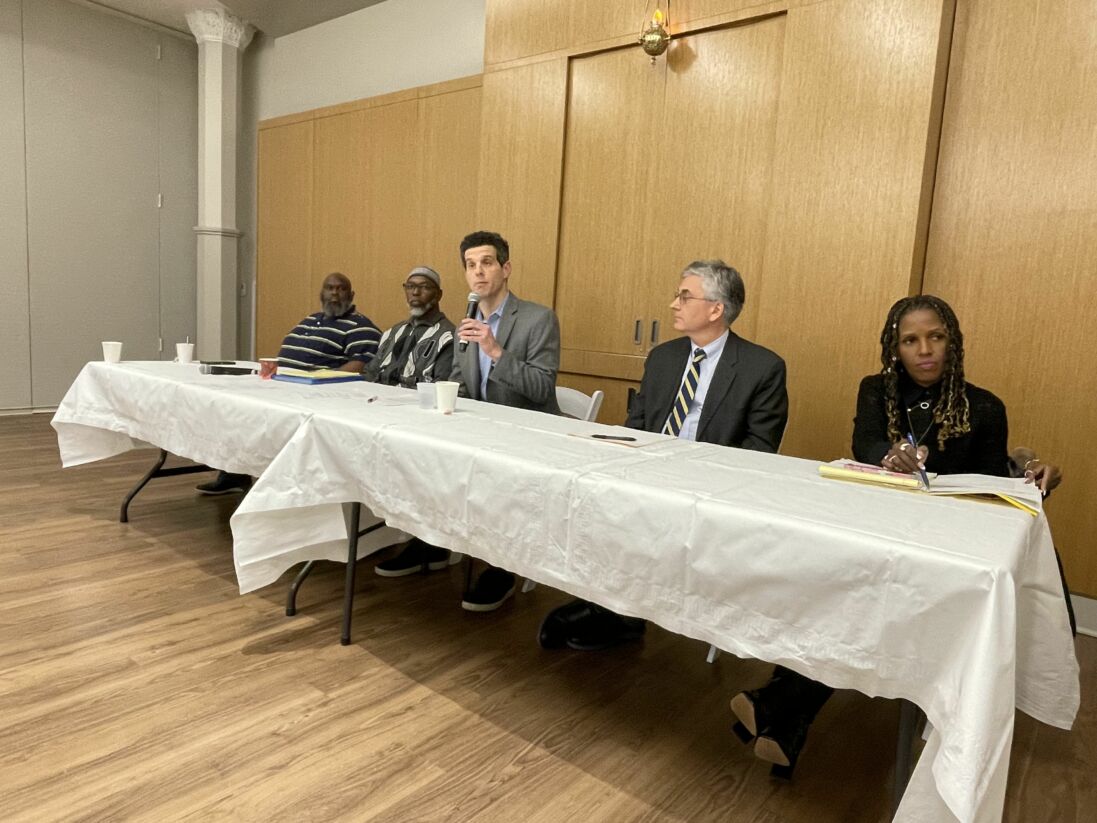
From Jan. 26-Feb. 3, Jews United for Justice hosted events all over the Baltimore area with a focus on youth justice, reducing incarceration rates and creating a safer environment for children and teenagers in the first-ever Maryland Youth Justice Shabbat and Solidarity Week. Working with policymakers and youth advocates from across the state, JUFJ focused on ending Maryland’s practice of charging minors as adults.
The week centers around how Jewish philosophy can be applied to the pursuit of youth justice, with 18 congregations and Jewish organizations participating. Programs include panel discussions, themed Shabbat services and integrations of special lessons focusing on youth justice into Hebrew school curricula.
“The goal of the week is to bring together Jewish congregations and organizations across the state to learn and take action on the issue of youth justice,” said Elianna Cooper, coordinator of JUFJ’s Youth Justice Working Group and a Maryland community organizer. “These events are united by a thread of engaging in conversation about Jewish textual traditions, and the connections they have to how we Marylanders can build a safer state for children and adults.”
According to the nonprofit organization Human Rights for Kids, Maryland has the fourth-highest rate of prisoners in its carceral system convicted as minors. In a study published May 2023, the organization found that six out of every 100 prisoners in Maryland were convicted when they were under 18. A disproportionate number are also children of color, with the majority being Black.
While there have been efforts by Maryland lawmakers to end the practice of charging children as adults for certain crimes, the most recent legislation on this issue stalled in early 2023 and has yet to be passed.
JUFJ is a part of the Maryland Juvenile Justice Coalition, which is dedicated to reforming the state’s justice system and pushing legislation meant to protect children in the carceral system.
Several speakers at Maryland Youth Justice Shabbat and Solidarity Week events were charged as adults for crimes committed when they were children. The Jan. 30 panel “L’Dor vaDor: Pursuing Justice for the Next Generation” at Beth Am Synagogue featured Incarcerated Children’s Advocacy Network member Willie Hamilton and ICAN Parole Advocate Gordon Pack, both returning citizens who shared their stories and discussed the current juvenile justice system in Maryland.
“It does nothing to help juveniles reform, it does the opposite,” Hamilton said. “We have to look for a solution that isn’t just locking them up. It wasn’t an effective solution in the 1980s, and it isn’t one now.”
Bereshit, the first chapter of the Book of Genesis, states that God created the world with the values of justice and mercy. JUFJ’s mission is focused on balancing these two values, using Jewish teachings to advocate for the rights of people in the prison system.
“The best gift we can give to our children is the ability to become healthy adults,” Beth Am Rabbi Daniel Cotzin Burg said at the panel. “The only way we get to make good choices as adults is by giving ourselves time to make some bad choices as kids. Sometimes there are really bad choices, and there are consequences to those choices. But we need to treat our children as children.”
In addition to Beth Am, other congregations hosting events for Youth Justice Shabbat and Solidarity Week include B’nai Israel Congregation in Laurel, Beth Shalom Congregation in Columbia and Chizuk Amuno Congregation in Pikesville, among others.
Cooper said she hopes participants come away from this week of programming with a better understanding of the juvenile justice system and what needs to be done to improve the treatment of prisoners in it.
“We want folks to come away understanding their power as Marylanders, as Jewish Marylanders, that they could be taking action on these issues, and sharing with their legislators and people in their lives that they need to be building a stronger, safer Maryland,” she said.







